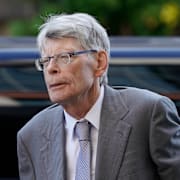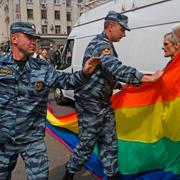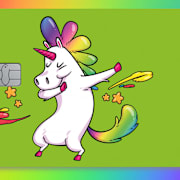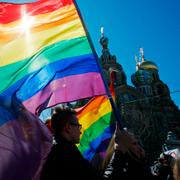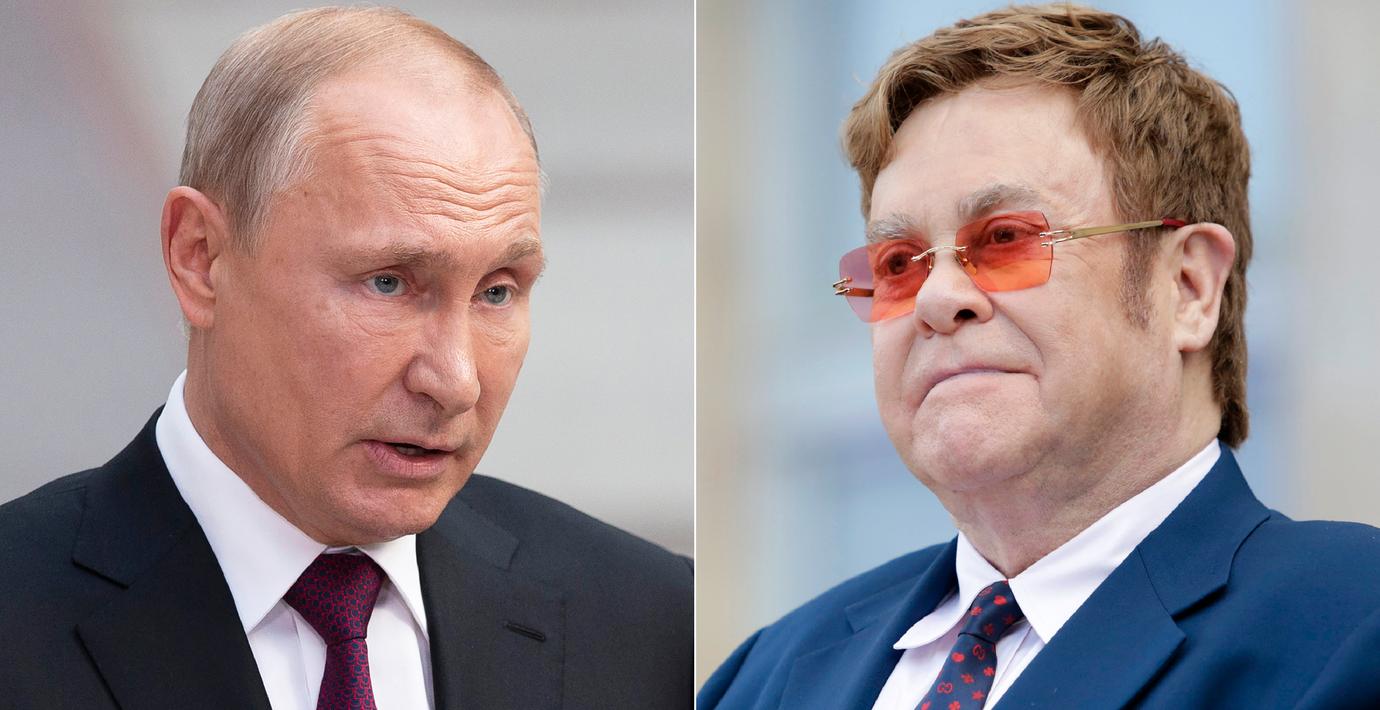
Putin om hyckleriorden: Elton John har misstagit sig
Musikern Elton John har rasat över Rysslands anti-gaylagar och sagt att Putin är en hycklare som sagt att han vill att HBTQ-personer ska vara lyckliga samtidigt som scener ur ”Rocketman”, filmen om musikerns liv, censurerats i Ryssland.
– Jag har stor respekt för honom, han är en genialisk musiker, vi uppskattar alla hans musik men jag tror han har misstagit sig, säger Vladimir Putin under G20-mötet i Osaka, enligt Reuters.
Läs mer
bakgrund
Rysslands anti-gay lagar
Wikipedia (en)
The Russian federal law "for the Purpose of Protecting Children from Information Advocating for a Denial of Traditional Family Values", also known in English-language media as the "gay propaganda law" and the "anti-gay law", is a bill that was unanimously approved by the State Duma on 11 June 2013 (with just one MP abstaining—Ilya Ponomarev), and was signed into law by President Vladimir Putin on 30 June 2013.The Russian government's stated purpose for the law is to protect children from being exposed to homosexuality — content presenting homosexuality as being a norm in society — under the argument that it contradicts traditional family values. The statute amended the country's child protection law and the Code of the Russian Federation on Administrative Offenses, to make the distribution of "propaganda of non-traditional sexual relationships" among minors, an offense punishable by fines. This definition includes materials that "raises interest in" such relationships; cause minors to "form non-traditional sexual predispositions"; or "[present] distorted ideas about the equal social value of traditional and non-traditional sexual relationships." Businesses and organizations can also be forced to temporarily cease operations if convicted under the law, and foreigners may be arrested and detained for up to 15 days then deported, or fined up to 5,000 rubles and deported.
The Kremlin's backing of the law appealed to the Russian nationalist far-right, but gained broad support among the Russian people and the Russian Orthodox Church (Russia is 50% Russian-Orthodox Christian). The law was condemned by the Venice Commission of the Council of Europe (of which Russia is a member), by the United Nations Committee on the Rights of the Child and by human rights groups, such as Amnesty International and Human Rights Watch. The statute was criticized for its broad and ambiguous wording (including the aforementioned "raises interest in" and "among minors"), which many critics characterized as being an effective ban on publicly promoting the rights and culture of the LGBT community. The law was also criticized for leading to an increase and justification of homophobic violence, while the implications of the laws in relation to the then-upcoming Winter Olympics being hosted by Sochi were also cause for concern, as the Olympic Charter contains language explicitly barring various forms of discrimination.
Omni är politiskt obundna och oberoende. Vi strävar efter att ge fler perspektiv på nyheterna. Har du frågor eller synpunkter kring vår rapportering? Kontakta redaktionen
